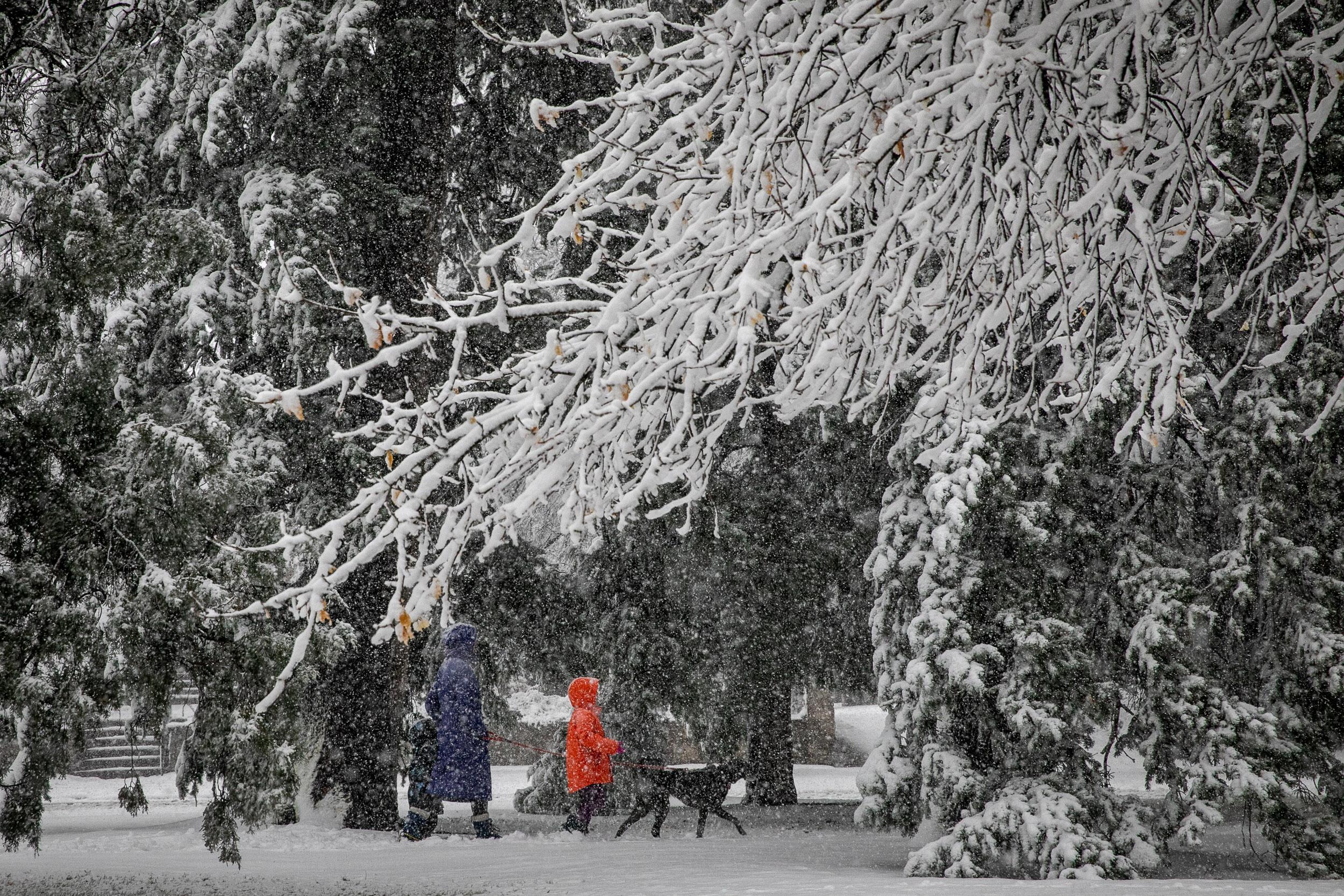
At first, it seemed that natural gas prices this winter could rise to levels not seen in years, resulting in higher gas bills at a time when many are still struggling financially from the coronavirus pandemic.
Warmer temperatures in recent weeks — including in Colorado — have decreased demand for natural gas for heating, according to S&P Global. While that has dropped market prices, state regulators and consumer advocates still expect Coloradans to see higher gas bills early next year.
Instability in both the global gas market and climate has worried members of the Colorado Public Utilities Commission, who say regional utilities are not doing enough to pressure gas suppliers to control prices.
“We've gotten fat, dumb and happy over the last dozen years with relatively stable gas prices,” Commissioner John C. Gavan told the board this month. “I think we're fundamentally entering a new time where we can count on more volatility going forward.”
The commissioners said they would revisit the process utilities follow to revise gas rates. Gavan said the decision was necessary given the unpredictable weather, driven, in part, by climate change and proposals from larger utilities like Xcel Energy to generate more energy using natural gas.
“There’s going to be more competition for a scarcer and scarcer resource,” he said.
Prices may not increase as much as originally thought, but they’ll still be higher
Colorado’s four investor-owned gas utilities, including Xcel Energy and Black Hills Energy Gas, submitted reports to the commission last month forecasting a surge in natural gas prices that would be passed on to ratepayers. Xcel Energy, which has 1.4 million natural gas customers across the state, estimated a household’s average March gas bill would rise by 57 percent compared to last winter, mostly due to a projected rise in natural gas prices.
The utilities have since changed their projections to reflect the lower gas prices. Atmos Energy, which has 124,000 customers in the state, withdrew its request to change its gas rates. Xcel now predicts average residential bills to rise by 37 percent, a $26.57 monthly increase from last winter, according to company spokesperson Matthew Lindstrom.
Although the company says that customers’ bills in Colorado are lower than national averages, consumer advocates are still concerned about what the increase will mean to residents that live on a fixed income.
“The income inequality that we're seeing in this country is just growing exponentially,” said Jennifer Gremmert, the executive director of Energy Outreach Colorado, a nonprofit that offers bill assistance to residents. “The pressure is on this low-to-moderate income household.”
Bills are also getting more complicated for residents to follow as companies add more fees and surcharges to help pay for the transition to cleaner energy, Gremmert said.
Monica Martinez, the executive director of The Fax Partnership, a nonprofit focused on Denver’s East Colfax corridor, said utility bills are becoming a growing concern for the area’s residents, more than half of which are Black or Latino. The partnership surveyed people who attended one of their food drives and found that paying utility bills was their second-biggest concern after paying rent — a worry they ranked higher than paying for food.
“Your housing is increasing, your food costs are increasing, your utilities are increasing,” Martinez said. “That can just be monumental and compound that financial insecurity.”
Regulators want utilities to negotiate better prices for customers’ sake
State regulators are urging public utilities to do more to negotiate natural gas prices with suppliers. Because gas costs are passed directly to customers, so are the risks caused by the unstable market, Public Utilities Commissioner Megan Gilman said.
“I don’t really see the utilities having the incentive to try and hold gas suppliers’ feet to the fire,” Gilman told the other commissioners. “And if they don’t, certainly regular customers don’t talk to gas suppliers, they can’t wield that sort of power.”
In its filing to the commission, Xcel Energy said the volatile market has led gas suppliers to prefer shorter-term contracts rather than monthly or seasonal purchases. The company has also increased its outreach to customers before seasonal changes and extreme weather events to help them conserve energy and lower their bills.
“It’s very hard to navigate all the changes that we're seeing, and I think the utilities are doing as best a job as they can,” Gremmert said.
Other utilities still plan to charge customers higher gas rates approved by the commission earlier this year. Black Hills Gas, which has about 178,000 residential customers in Colorado, has yet to collect from customers the money it spent purchasing natural gas and does not plan to decrease its gas rate, according to Black Hills Energy spokesperson Ashley Campbell.
The companies have yet to include the insurmountable costs spent on natural gas during the nationwide cold snap that shut down Texas’ power grid this February. Atmos and Colorado Natural Gas will be adding those costs to bills starting in 2022; Xcel and Black Hills Gas are expected to argue their costs in front of the commission next year.
Editor's note: an earlier version of this story incorrectly described Black Hills' plans for gas rates. It has been corrected.









